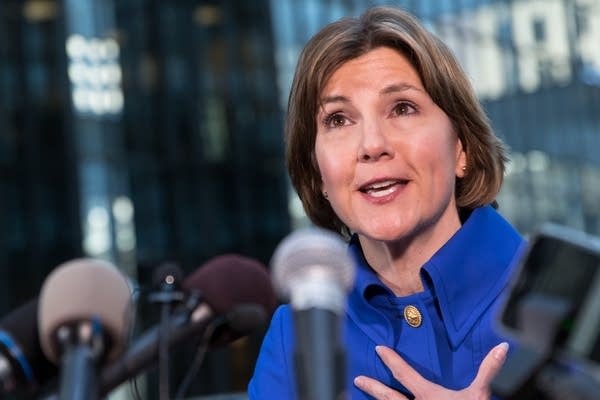Lots of Minnesota attorney general candidates, but what's the AG do?

Minnesota Attorney General Lori Swanson announces she is running for governor during a press conference at the Marquette Hotel in Minneapolis on June 4, 2018.
Lacey Young | MPR News
Go Deeper.
Create an account or log in to save stories.
Like this?
Thanks for liking this story! We have added it to a list of your favorite stories.


